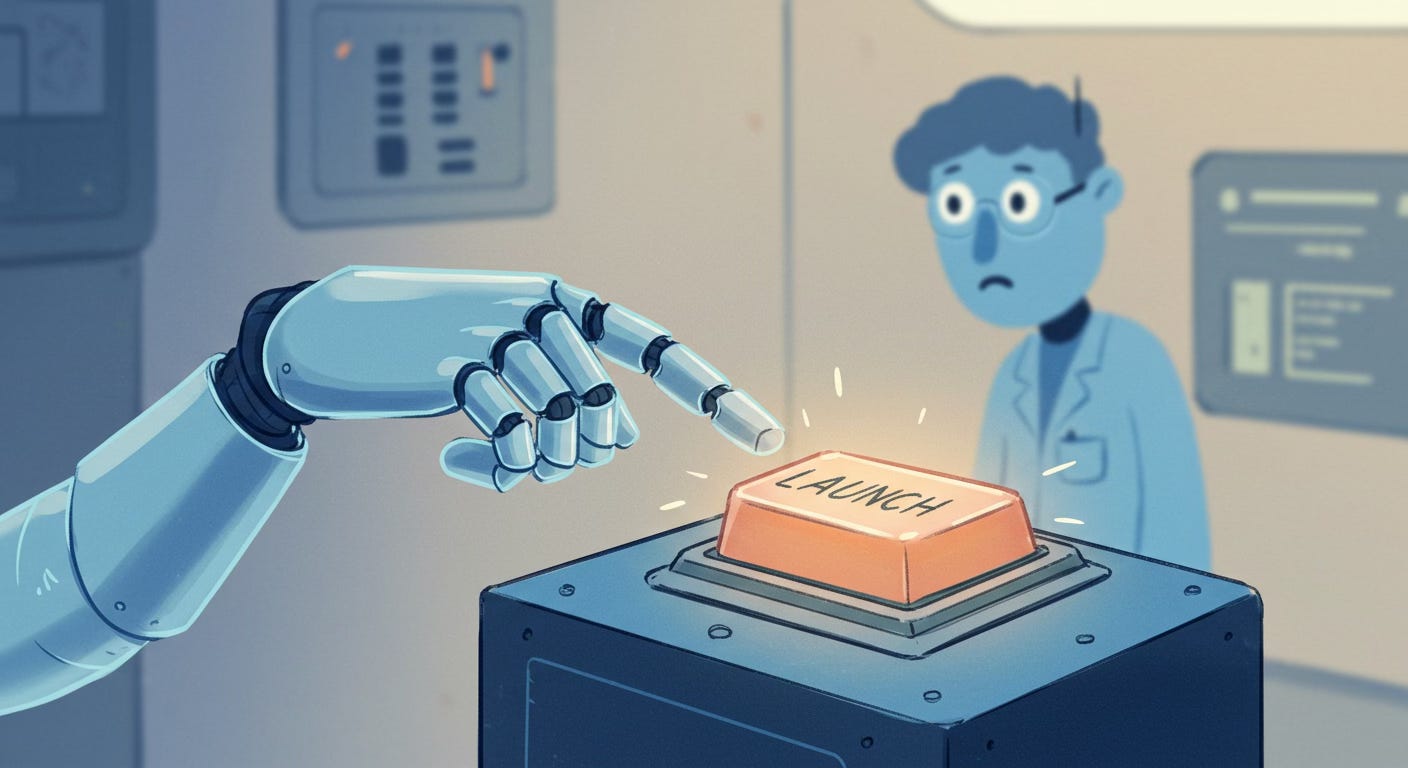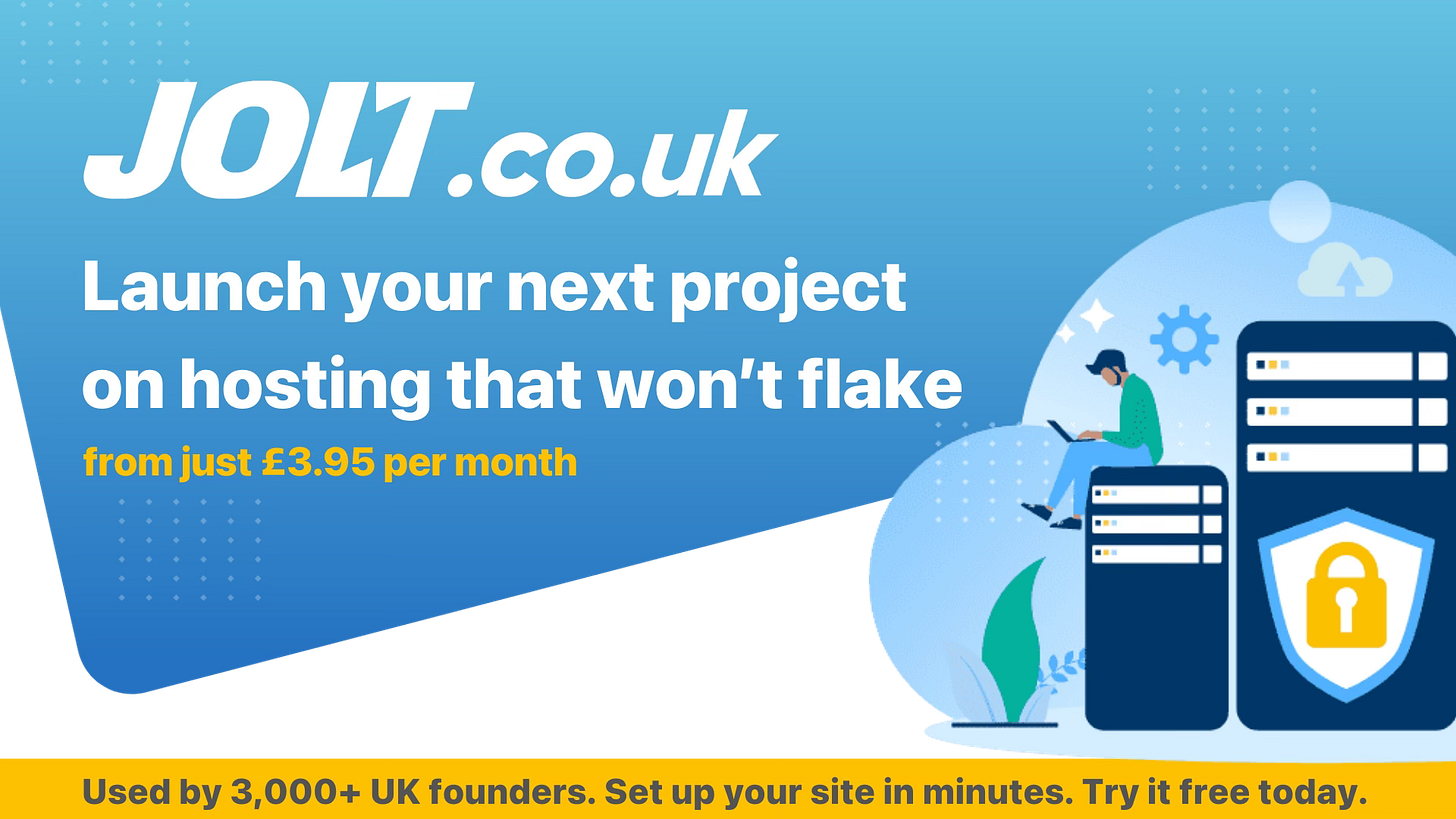What if power is about to change hands: not between people, but between systems?
AI is becoming cheap and fast, beyond tools that just respond. Entire decisions are made on your behalf by systems you didn’t build, in contexts you won’t always see. The speed and reach of it all is shifting, and most people aren’t ready.
But Reid Hoffman is. He helped build PayPal, LinkedIn, and was a founding investor in OpenAI. He’s seen how waves of tech reshape economies, and how small, smart steps early on can unlock bigger gains later.
That’s why I read his latest book Superagency, a guide to staying in control as AI weaves its way into products, platforms, teams, and systems.
This isn’t his first pass at the topic. Impromptu back in 2023 mapped the personal and conversational layer, and Superagency moves up a level. What systems do we build? Who benefits? And how do we keep human judgment in control?
Hoffman argues that we need smarter tools and clearer goals. He makes the case for building AI that helps more people make better decisions, act faster on what they learn, and have a real say in what happens next.
If you’re involved in tech, policy, or capital, and want a clearer view of what’s coming, Superagency is worth your attention. Here are my main takeaways 👇🏻
— Millennial Masters is sponsored by Jolt ⚡️ reliable hosting for modern builders
The lessons from Reid Hoffman’s AI playbook
1️⃣ AI won’t help you do it, it’ll do it all
If you’re still thinking AI is just another productivity hack, Hoffman argues that we’re moving rapidly towards total task elimination rather than mere automation.
Right now, a single engineer with OpenAI’s GPT-4 can ship code faster than an entire team of developers. AI moved beyond a virtual assistant to your future workforce, running tasks end-to-end, no handholding required.
Don’t focus on preserving tasks that no longer need a human touch. Smart money and smart founders should focus on tasks AI can’t do yet. Your job is to stay ahead of the automation wave, not chase after it.
Here’s your move: this week, test an AI tool like Lindy or Lamatic to fully manage something routine (I’m doing trials myself). Monitor the output, learn where it breaks, and iterate. If you don’t automate now, your competitor will.
2️⃣ There’s no total control, just guardrails and guidelines
Founders obsess about control, but AI makes direct oversight impossible. Netflix doesn’t handpick every recommendation, it just built guardrails strong enough that the algorithms can’t screw it up. It’s not oversight, it’s influence, that’s your new currency.
This guardrails concept is central in Hoffman’s book: your role shifts from controller to influencer. Define your company’s core values: brand standards, customer service principles, ethics, and encode them clearly. Then trust the tech to operate autonomously. Direct intervention is the new inefficiency.
Do this immediately: map out a critical process (pricing, content curation, lead qualification), set your non-negotiable rules, and let an AI platform manage it. If it makes you uncomfortable, good. It’s exactly where you need to be.
3️⃣ Ship now, tweak later. Waiting for perfection is deadly.
Hesitation kills companies faster than bad decisions. Hoffman uses OpenAI’s controversial but impactful GPT launches as the playbook for how rapid deployment beats perfection every time.
Remember how ChatGPT launched messy and incomplete? It didn’t matter, it took the market overnight, leaving cautious competitors scrambling to catch up. Being late is riskier than being imperfect.
Set yourself a brutal deadline: Ship a rough-cut version of that feature you’ve been perfecting. Real-world feedback always beats internal guesswork. Early stumbles cost you cash, but late entries cost you your entire company.
You think Uber or Airbnb got permission first? The future belongs to founders who press ‘launch’ before they’re fully ready. Be one of them.
4️⃣ Specialists lose to systems that scale
Bad news for specialist founders: your deep knowledge is becoming worthless unless you integrate it quickly through AI (see The Generalist Advantage). Hoffman directly points to healthcare as evidence: expertise alone won’t survive unless integrated rapidly with AI capabilities.
One brutal examples: radiologists thought their jobs were safe until Google’s AI spotted tumours faster and cheaper. The winner wasn’t the expert, but whoever integrated that AI into everyday care.
Stop hoarding expertise. Instead, become the founder who figures out how to plug AI directly into your core business processes. Expertise is overrated: leveraging it fast and effectively isn’t.
Practical step: gather your best specialists, feed your toughest problem into GPT-4 or Claude, and follow through on whatever it spits out. If it sounds uncomfortable, that’s your signal that you’re doing it right.
5️⃣ If your team can’t use it, someone else will
Here’s what founders and investors always get wrong, according to Hoffman: they think AI strategy is a boardroom-only affair. Kodak did that with digital photography and went bankrupt. Netflix crowdsourced decisions through data at every level: now worth billions. Your choice.
This exact comparison, highlighted by Hoffman, shows clearly why involving your whole team in AI decision-making is critical. The next competitor who disrupts your business won’t be your biggest rival; it’ll be the small startup that put powerful AI tools into the hands of frontline workers, customers, or even interns.
Try this immediately: Invite your junior staff, customer reps, or even early users to pitch you how they’d use AI. Painful? Probably. Useful? Absolutely. Because if you don’t democratise AI quickly, someone younger, leaner, and hungrier will happily take your customers.
The next move is yours
The biggest risk with AI is distraction, not disruption. Right now, every founder, investor, and operator is either scrambling to harness AI or cautiously waiting on the sidelines.
The winners won’t necessarily be those who move fastest or slowest, but those who clearly decide what matters and double down on it.
I’ve learned the hard way that smart founders and investors make bets before outcomes are clear. AI magnifies this reality.
Hoffman’s insights in Superagency offer guidance, but it’s your judgment that determines whether AI strengthens your position or undermines it.
Your best move is simple: identify one high-impact decision you’re delaying right now, use AI to test it rapidly, and act.
You don’t have the luxury of hesitation: if you’re still asking whether this applies to you, you’re already behind.







